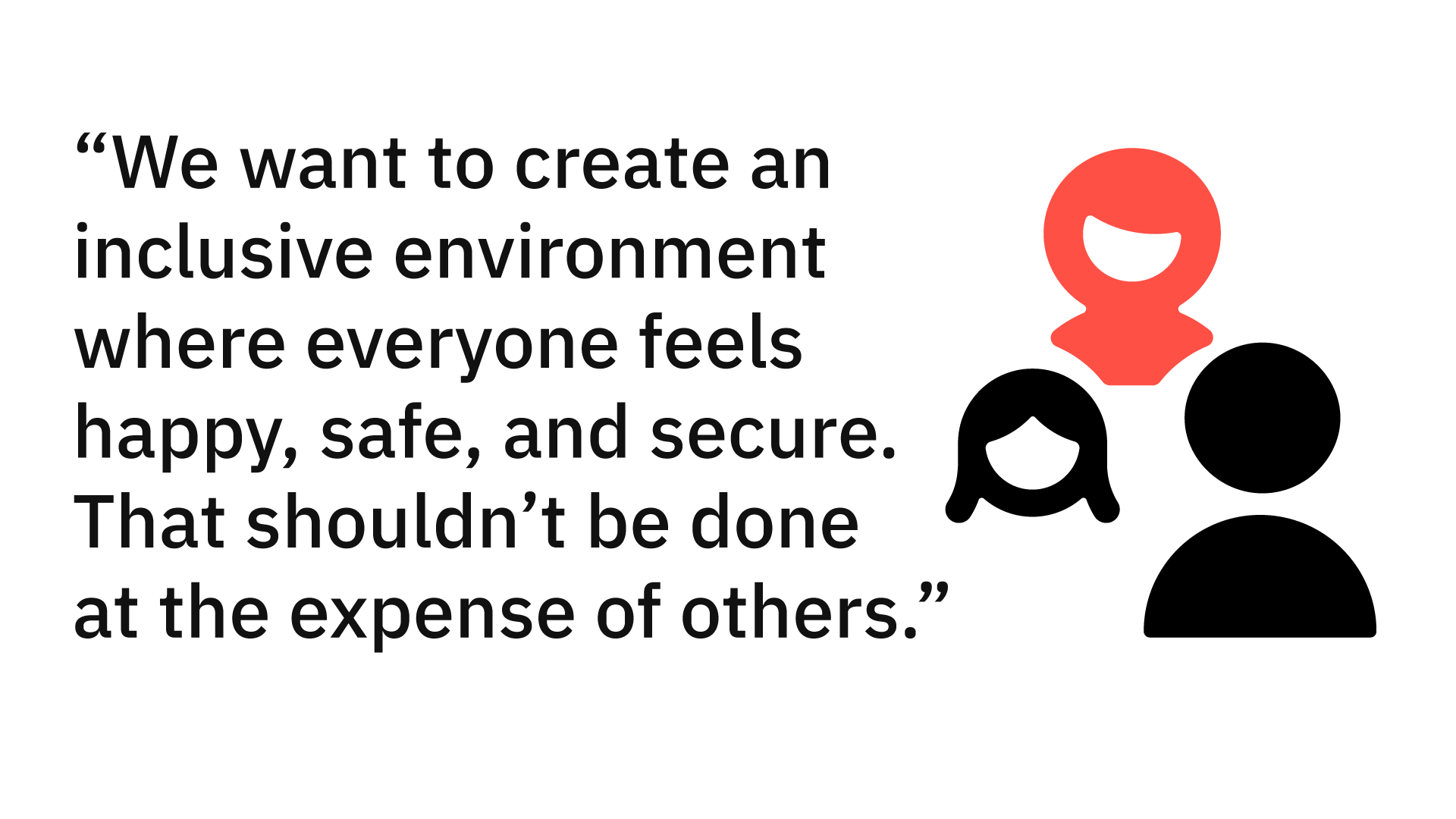
Fighting prejudice in the workplace.
Updated on October 16, 2024
The effects of prejudice can undermine the foundation of a harmonious and productive work environment, hindering both individual well-being and collective success. Fighting prejudice in the workplace requires a proactive and strategic approach, grounded in awareness, education, and a commitment to creating a culture that values diversity. In this guide, we will explore effective strategies and actionable steps to confront and eliminate prejudice, promoting an atmosphere where every employee feels respected, appreciated, and able to contribute their full potential to the collective success of the organization. Fighting prejudice is one of the cornerstones of any modern business and we’ve included it in our core values. But how does one do that exactly?
How to fight prejudice in the workplace.
At Transcom we pride ourselves for being an open, welcoming, diverse, and inclusive workplace. But getting there and staying there isn’t easy even though the steps are simple. That’s why we focus on fostering a sense of personal responsibility and community. This leads to an atmosphere of confidence that your voice will be heard and your issues addressed. After all, fighting prejudice in the workplace requires a team effort as well as a personal one. After that it’s up to our employees to take a stand and for us to support them every step of the way.
Care.
The first, and most important step of this process is to care. Caring serves as the catalyst for meaningful change and cultural transformation. When individuals genuinely care about combating prejudice, they demonstrate a commitment to understanding, empathy, and fostering an inclusive environment. This genuine concern propels action and drives the collective effort needed to dismantle biases and discriminatory practices.
Caring instills a sense of responsibility, encouraging individuals to actively educate themselves and others about diverse perspectives, experiences, and cultures. It motivates individuals to confront their own biases and challenge preconceived notions, fostering an environment where open dialogue is not only encouraged but becomes a powerful tool for dismantling stereotypes. It also serves as the basis to take an active role in fighting prejudice in the workplace by motivating you to challenge prejudiced ideas and sentiments.
In essence, caring acts as the foundation upon which a workplace culture of respect, understanding, and acceptance can thrive. It empowers individuals to be allies, supports marginalized groups, and actively contributes to creating a work environment where everyone feels valued and appreciated.
Educate and be educated.
Understanding prejudice and sharing that knowledge with others is like planting seeds for positive change. It's not just about recognizing different forms of bias; it's about creating a space where everyone feels seen and valued. When we learn about the experiences of others, it's like opening a door to empathy and a deeper understanding of diverse perspectives.
Some people may not be aware of things that fall under the category of prejudice. That means that they can say offensive things or act in a certain manner without realizing it’s offensive to people or groups. That means that education about prejudice isn’t only about recognizing it in others but also in ourselves.
Being educated isn't just about knowing; it's about being allies in the fight against prejudice. It's about actively supporting each other, amplifying voices, and creating spaces that are fair and equal. Education isn't just a tool, it's our guide toward a more inclusive and accepting society.

Say something.
Speaking out against prejudice is absolutely crucial in the fight against discrimination. The worst thing you can do is let prejudiced behaviors slide unnoticed. When we voice our opposition to prejudice, we're sending a clear message that such behavior is just not acceptable. This kind of vocal stance challenges the normalization of discriminatory attitudes and behaviors, holding people accountable for their actions.
Voicing our opposition to prejudice also fosters open dialogue. It encourages conversations that challenge stereotypes, address misconceptions, and promote a deeper understanding of diverse perspectives. These conversations are essential for breaking down barriers and creating a space where individuals feel comfortable expressing themselves without fear of discrimination.
Saying something when fighting prejudice in the workplace is an active and essential step toward creating a culture of respect, understanding, and inclusivity. It's the first step towards building a society where diversity is celebrated, and everyone is treated with dignity and equality. And hey, who doesn't want to be part of that?
Challenge prejudice.
There are many different ways of fighting prejudice in the workplace, not just speaking up. While speaking up and directly confronting is the simplest and most direct, it may not be the most effective. Apart from that, some people have a strong aversion towards confrontations of that nature.
Another way to go about this is to challenge prejudiced behaviors in more subtle ways. Say, for example, a colleague makes a sexist joke. Some would call them out directly, but, another thing you can do is feign ignorance. Ask them to explain the joke. Forcing people to conceptualize their prejudice, and to actively think about it, often makes them ashamed of their words. It makes them realize that what they’re saying isn’t appropriate, and, more often than not, will result in behavior like that to not happen again.
This means that we can take a stand in many ways, while not even going out of our comfort zone. From taking a personal stand, going to HR, or just being there for your colleagues. Being an active participant in fighting prejudice in the workplace can take many forms, and all of them are welcome and needed.
Fight concepts, not people.
With all of this being said, it’s also important to keep in mind that the issue you have and the fight you’re leading is not against the people around you, but with the concepts they have been influenced with. While fighting prejudice in the workplace you need to make sure you’re not creating a hostile environment yourself.
Moreover, concentrating on prejudice allows for constructive solutions. Rather than engaging in confrontations with specific individuals, the emphasis is on implementing policies, training programs, and awareness campaigns that target the root causes of prejudice. This proactive approach encourages long-term cultural change and promotes a more equitable and respectful work environment.
Thirdly, there is nothing to gain by antagonizing the people around you. This is about making sure that people change and that they become better colleagues, employers, employees. We want to create an inclusive environment where everyone feels happy, safe, and secure. That shouldn’t be done at the expense of others
In conclusion.
Transcom values diversity and inclusivity, and we are committed to fighting prejudice in the workplace in any way we can. From having a great HR department that’s there to listen to you, to writing blogs like these to raise awareness, we try to do our part. But, as we said, it’s also important to make sure our work culture is on the same level. One of the first things we need to do in order to accomplish this is to hire people that care. If you’re a person that’s intent on fostering diversity and fighting prejudice, and you want to work at a place that shares your values - you’ve come to the right place. Browse through our jobs, and become a part of something brilliant.
